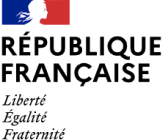France compétences therefore operates at three levels
- Financing of the system in a sustainable and optimal way;
- Regulating the market to better identify skills needs and ensure the flexibility of the range of professional training and qualifications to address new economic and social challenges;
- Improving the performance, transparency and cooperation between the various players.
To fulfill these missions, the institution issues recommendations and reports any problems in order to enhance the quality of services provided to users.
“Organisation and financing”
The institution organises and finances a device called “CEP” – professional development advice – a process of support, discussion and advice available to any employee seeking to develop their career. The system is free and accessible to all employees, regardless of age, business sector, status or qualifications. It contributes to developing skills, increasing capabilities and providing access to new qualifications.
“Regulation”
The institution regulates costs and distributes funds for vocational training between the various CVET and IVET players. It is able to issue recommendations on access to training, costs and funding rules and collects information from training providers while communicating with all industries and social partners. It is also financing the personal training account – CPF.
To promote high-quality lifelong learning, it is in charge of the quality assurance in VET and has the responsibility to register qualifications which are meaningful for the labour market (qualifications with a level of National qualification framework, and other important qualifications for the labour market).
“Dialogue”
The institution also contributes to the public debate on vocational training and assesses VET policies. It provides an exchange forum for dialogue and conducts studies, while maintaining an ongoing relationship with industries, social partners and public decision makers.
France compétences has a Board of Directors, elected for three years, which has three specialist committees to analyse, review and provide expertise in their respective fields: the Audit and Finance Committee, the Assessment and Evaluation Committee and the Recommendations Committee.
The Professional Qualifications Committee, created by the decree of 18 December 2018, has a special status. Its members are appointed by the French Labour Minister, guaranteeing its independence in the performance of its duties. It is particularly responsible for the two national reference frameworks: the RNCP (French National Framework of Professional Qualifications) and the RS (Specific Reference Framework).



